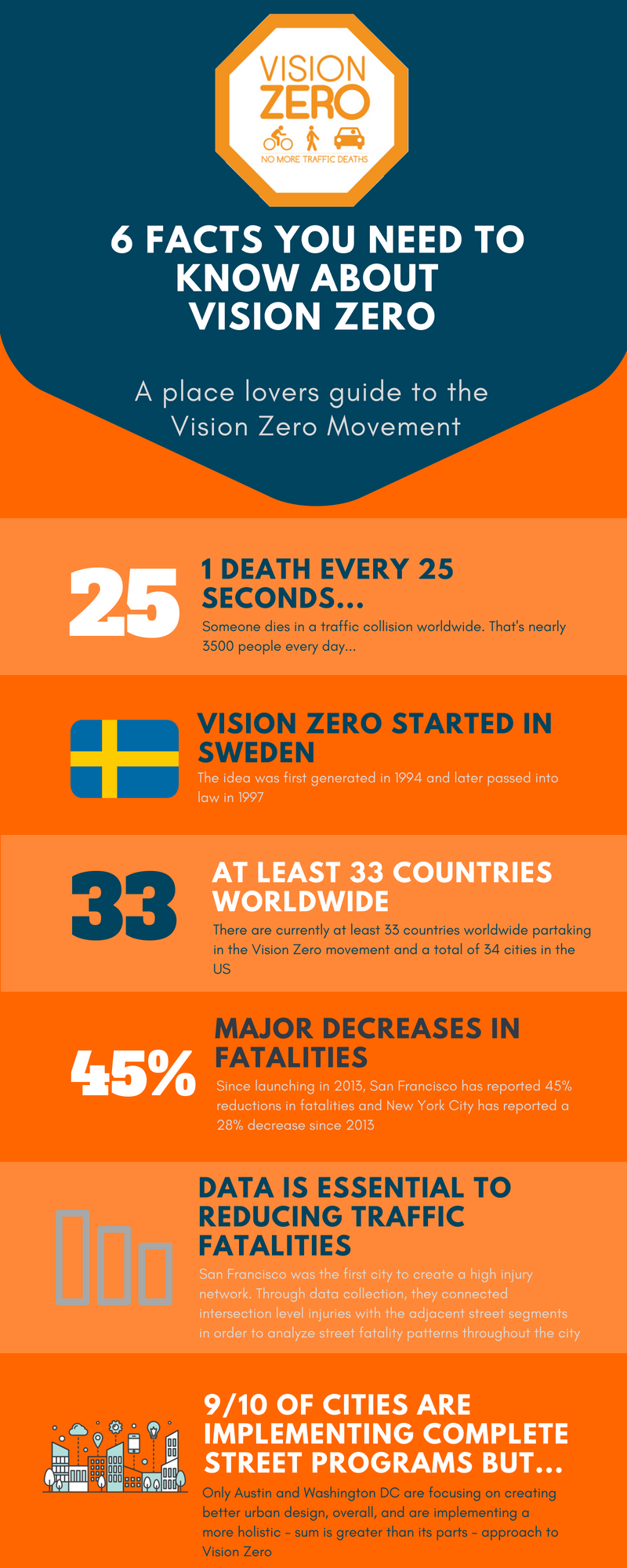Design For Our Lives
The First Installment in Our Vision Zero Blog Series:
Introduction & Vision Zero 101 Infographic
As many of you know, last week, I pitched State of Place as part of Katapult Accelerator's Demo Day as well as the Katapult Future Fest. I have to admit - the audience's engaged expressions, animated applause - it was pretty amazing. I even made it to the finals of the Future Fest, along with four other startups chosen out of over 50 social impact startups from around the world. And boy was I on fire, passionately lamenting the clear and significant costs of poor urban design. Nevertheless, one of my fellow startups from Katapult Accelerator - RxAll - won the pitch. Inspired by their founder's personal story of nearly dying because of fake medicine, they can tell you whether a drug is safe (Prince would still be alive if only he'd used their product!). Clearly, I and the other startups (focusing on telemedicine, to corporate sustainability, to food waste) never thought we stood a chance - how can you compete with a product where the stakes are literally life and death...but then I started thinking...
Faceless Facts
If you've ever heard me pitch before, I always start by recounting my own pivotal moment that sparked the passion that would send me on this crazy entrepreneurial roller-coaster - growing up in Miami as a carless teenager, terrified to cross the street. I tie this to stats - data, if you will - tied to these kinds of auto-dominated landscapes: 1 in 6 deaths is tied to pollution...$31T is spent annually treating chronic diseases tied to sedentary lifestyles...every 25 seconds, someone dies in a traffic collision. While powerful, these are faceless facts, which leaves people assuming that design is mostly an indirect factor...not a matter of life and death. But they could not be more wrong...
Human Heartstrings
I never tell this story...but when I was in high school, one of my friends was run over and killed while walking her bike across a six-lane road. She was 15. And had a midblock crossing been installed, Christina would still be with us. So literally, a coat of paint could have saved her. A coat of paint was - and is - a matter of life and death. Clearly, this isn't about figuring out a way to pull on the heart strings so I have a chance of competing with the incomparable Adebayo Alonge (CEO of RxAll). This is about figuring out a way to make spending and investing in urban design as compelling as spending on life-saving drugs. This is about getting people - planners, designers, engineers, residents, politicians - to recognize that good urban design is indeed also a matter of life and death. And it's a perfect segue to the beginning of our new series on Vision Zero...
Designing for Vision Zero...
Most of you have likely heard about the Vision Zero movement, which aims to reduce the number of deaths tied to traffic collisions down to ZERO. But we've found that most people don't fully understand its history, where it's being implemented, the tactics and strategies being used, its effectiveness, or the role (or lack thereof) of design in the movement. So over the next few weeks, we'll be bringing you several blogs exploring the Vision Zero movement, from its origins to common strategies to best practices to the role of design. We'll also cover how State of Place can help identify and prioritize changes most likely to reduce - and eliminate - pedestrian and bicyclist deaths. For this, our first installment, we've created a handy Vision Zero 101 infographic to get you started and to help you spread the message that we must Design for Our Lives! Download it, share it, and help save the lives of future Christinas and the other 40,100 people who lose their lives every year in traffic collisions, in the US alone...
And if you don't want to wait till our next blog to find out how State of Place can help save lives and truly get to Vision Zero, schedule a demo or try it now!


